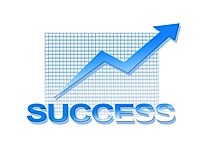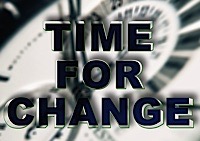 The thought of possessing enough natural ‘X-factor’ (charisma, magnetism, whatever you’d like to call it) to instantly appeal to anyone is a very powerful and seductive one.
The thought of possessing enough natural ‘X-factor’ (charisma, magnetism, whatever you’d like to call it) to instantly appeal to anyone is a very powerful and seductive one.
Can you imagine the kind of influence you could have simply by decoding your own X-factor?
The French term for this irresistible quality is je ne sais quoi – literally, “I do not know what” – which only serves to fuel the misnomer that this quality is somehow too elusive and inexplicable to be developed or manufactured.
I disagree.
Through my experience as a professional speaker, I have come to understand X-factor as a person’s ability to communicate and self-express effectively in front of an audience or within the context of an individual interaction.
innovation DAILY
Here we highlight selected innovation related articles from around the world on a daily basis. These articles related to innovation and funding for innovative companies, and best practices for innovation based economic development.
Creativity is the overlooked success factor
 What do you think is the biggest challenge to becoming a great business leader?
What do you think is the biggest challenge to becoming a great business leader?
We pondered that question ourselves last week and asked some of Everett Community College's business management students to share their answers.
Here is a sampling of some their perspectives, from managing employees to responding to change.
• "The greatest challenge is bringing up your entire team to someday be leaders themselves," said Mark Weeks of Lake Stevens.
Chinas Spotlight on the Global Entrepreneurship Renaissance - Entrepreneurship.org
 It is an important week for entrepreneurship around the world, especially here in China where we recently wrapped up the Kauffman Foundation-led Global Entrepreneurship Congress, bringing together impressive leaders in the field from over 100 nations. In addition to launching and recognizing more than 100 national campaigns to promote entrepreneurship through this year’s Global Entrepreneurship Week (scheduled for November 14-20), we have witnessed this week entrepreneurship as a burgeoning phenomenon from Chile to China.
It is an important week for entrepreneurship around the world, especially here in China where we recently wrapped up the Kauffman Foundation-led Global Entrepreneurship Congress, bringing together impressive leaders in the field from over 100 nations. In addition to launching and recognizing more than 100 national campaigns to promote entrepreneurship through this year’s Global Entrepreneurship Week (scheduled for November 14-20), we have witnessed this week entrepreneurship as a burgeoning phenomenon from Chile to China.
On Tuesday I could only be impressed when I looked out over the podium at a Chinese convention center full of more than 1,000 angel investors, educators, entrepreneurs and public officials. While I am always curious as to how one seeds organic, disruptive, entrepreneurial behavior in such a disciplined, top down society as China, I witnessed a sincere effort in my meetings these past few days with Chinese entrepreneurship policy champions to expand freedoms to start new businesses. The Minister of Science & Technology and Vice-chairman of the CPPCC National Committee Wan Gang, Vice Chairman of National People’s Congress Yan Junqi, and our keynote speaker Liu Yandong, who is Member of Standing Committee of Political Bureau all openly encouraged entrepreneurial activity and launched western-style interventions to support startups. We also heard from Chinese entrepreneurs and angel investors, who are well aware of the importance of entrepreneurship to China’s future, including an impressive panel discussion that included Carl Schramm from the Kauffman Foundation, Li Kaifu, the founder of Innovation Works, and Qiwei Chen, the founder and president of the Asia Business Group and Sequoia Capital China.
The Problem With Megacities | Newgeography.com
 The triumphalism surrounding the slums and megacities frankly disturbs me. It is, of course, right to celebrate the amazing resilience of residents living in these cities’ massive slums. But many of the megacity boosters miss a more important point: that the proliferation of these sorts of communities may not be desirable or even necessary.
The triumphalism surrounding the slums and megacities frankly disturbs me. It is, of course, right to celebrate the amazing resilience of residents living in these cities’ massive slums. But many of the megacity boosters miss a more important point: that the proliferation of these sorts of communities may not be desirable or even necessary.
Cities may be getting larger, particularly in the developing world, but that does not make them better. Megacities such Kolkata (in India), Mumbai, Manila, Sao Paolo, Lagos and Mexico City — all among the top 10 most populous cities in the world — present a great opportunity for large corporate development firms who pledge to fix their problems with ultra-expensive hardware. They also provide thrilling features for journalists and a rich trove for academic researchers.
The Many Faces Of An Entrepreneur
 You are an aspiring entrepreneur, eager to dump the corporate grind, and work to the beat of your own drummer, but you can’t come up with that killer idea to save the world.
You are an aspiring entrepreneur, eager to dump the corporate grind, and work to the beat of your own drummer, but you can’t come up with that killer idea to save the world.
What are the alternatives that will give you the independence you crave, and challenge your business acumen?
Technically, I believe an entrepreneur is anyone who manages his own profit and loss, and doesn’t meet the government tax definition of an employee. Beyond the traditional new product or service model, you can always buy an existing business, purchase a franchise, join a multi-level marketing (MLM) company, or simply go out on your own as a consultant.
6 Ways A Leader Wins by Doing Nothing | David Shedd's Blog
 “Just Do it”
“Just Do it”
“Make it happen”
“Be a Doer”
So much of leadership is about getting things done and accomplishing goals. As such, business leaders are often fixated by activity, motion, and action. The more that is done the better.
As a leader, however, there are times when it is best to do nothing.
Why More Women in the Board Room is Essential to Innovation
I did not think of the very obvious when writing a post yesterday about Jive Software's new members to its board of directors.
did not think of the very obvious when writing a post yesterday about Jive Software's new members to its board of directors.
The men Jive chose are all talented, intelligent and well-respected people. They have risen to the top of their fields. But where are the women?
Jive is not an uncommon example. But the lack of women board members does point to a problem that companies need to address. For the companies that do, there could be advantages that they never expected.
In University Supercomputing, the Fastest May No Longer Be the Best - Technology - The Chronicle of Higher Education
 The warehouse-sized supercomputer under construction here at the University of Illinois at Urbana-Champaign comes with a price tag of nearly half a billion dollars, making it one of the most expensive supercomputers ever devoted to academic research. And yet, when engineers turn on the machine this year, it very likely won't be the fastest computer in the world.
The warehouse-sized supercomputer under construction here at the University of Illinois at Urbana-Champaign comes with a price tag of nearly half a billion dollars, making it one of the most expensive supercomputers ever devoted to academic research. And yet, when engineers turn on the machine this year, it very likely won't be the fastest computer in the world.
And its designers don't care.
"We're not looking to be on the Top 500 list," says Thom Dunning, who leads the computer's development as head of the university's National Center for Supercomputing Applications. Rather than hit a peak sprint speed measured by the Top 500, the most widely used supercomputer ranking, he wants to build a distance runner, capable, for example, of powering through intricate simulations of a tornado that can predict where a storm might strike.
10 Reasons You Need To Quit Your Job
I fell straight down and broke both my legs right in the middle of the street. Or strained them. Or something. Because I couldn’t walk for a week afterwards. I was walking on Wall Street with two partners in the private equity firm I had just become a partner at earlier that week. This was fairly recently. Like in the past two years. I hadn’t stumbled over anything. Just fell to the ground in front of everyone.
fell straight down and broke both my legs right in the middle of the street. Or strained them. Or something. Because I couldn’t walk for a week afterwards. I was walking on Wall Street with two partners in the private equity firm I had just become a partner at earlier that week. This was fairly recently. Like in the past two years. I hadn’t stumbled over anything. Just fell to the ground in front of everyone.
“You ok?” everyone asked. I pretended to not limp. Later that night I couldn’t walk. A few days later I showed back up at the firm for a meeting I had set up. I wanted to do business with a Brazilian private equity firm. Brazil has two harvests I learned in the meeting. Sounded like a place I wanted to do business. But I got bored. “Excuse me,” I said. And I walked out of the meeting. Out of the office. 67 floors down. Subway to Grand Central. Train up the Hudson Valley.
Google Yourself to See How Other People See You
 The measure of an entrepreneur used to be the number of real friends claimed, but times have changed. Now the measure is how many hits one has on a Google name search, factored by some formula, like the sum of all positive messages minus 100 for every negative message. If you don’t define yourself effectively, the Internet will do it for you in ways you never imagined.
The measure of an entrepreneur used to be the number of real friends claimed, but times have changed. Now the measure is how many hits one has on a Google name search, factored by some formula, like the sum of all positive messages minus 100 for every negative message. If you don’t define yourself effectively, the Internet will do it for you in ways you never imagined.
That’s the reason every good parent should be coaching their child from birth to avoid posting all the naughty things on social networks that can come back to haunt them later. To illustrate the point, here is a true story posted by Seth Godin a while back:
I Encourage Entrepreneurs To Ignore The Word “Bubble”
 Every time I hear the word “bubble” I think of that quote from Macbeth. I also think of Tulip Mania and the South Sea Company which purportedly was the source of the concept of an economic bubble. And then I remember Charles Mackay’s classic book “Extraordinary Popular Delusions & the Madness of Crowds.”
Every time I hear the word “bubble” I think of that quote from Macbeth. I also think of Tulip Mania and the South Sea Company which purportedly was the source of the concept of an economic bubble. And then I remember Charles Mackay’s classic book “Extraordinary Popular Delusions & the Madness of Crowds.”
When I returned last weekend from a week off the grid I encountered the word “bubble” over and over again when referring to the tech industry. A variety of people were using it to describe the current situation. This has been going on for at least a quarter or two, but the velocity of it seems to have picked up with a wave of high priced financings along with large financings for nascent companies. While plenty of tech bloggers were tossing around the word “bubble”, I also noticed it among the mainstream media. But more interestingly I saw it in my twitter feed from some entrepreneurs and VCs who I respect a lot. So I spent some time on my run yesterday rolling the idea of a bubble around in my head.
Why Marriott Wants Digital Renderings of Everything - Technology Review
 Marriott International has been using computer-aided design (CAD) tools for more than 20 years. The software makes it much faster and cheaper for the company to plan renovations or new hotels. Now the hotel chain is focused on achieving what might be considered the next generation of efficiency from CAD software: using it to tackle the seemingly unrelated issue of supply-chain management.
Marriott International has been using computer-aided design (CAD) tools for more than 20 years. The software makes it much faster and cheaper for the company to plan renovations or new hotels. Now the hotel chain is focused on achieving what might be considered the next generation of efficiency from CAD software: using it to tackle the seemingly unrelated issue of supply-chain management.
Marriott uses software tools made by Autodesk for virtually all of its designs for 3,200 properties in nearly 70 countries. In the past, the company would have carpenters build a mock-up of a new room or lobby to determine the design's suitability. By dispensing with that step, the company has reduced its design costs by 90 percent, and its facilities are ready for guests six months faster.
Thrice Around the Block: How to Set Prices: Tangible Pricing Methods
 In order to set pricing, certain decisions need to be made with respect to:
In order to set pricing, certain decisions need to be made with respect to:
1. Pricing Strategy
2. Business Revenue Model
3. Pricing Mechanisms
As discussed in the prior two posts, these three elements can be combined in many different ways; arriving at the proper combination is part planning, part art, and part trial and error. But assuming you've gotten this far, it still leaves the question of what price to charge?
First, let me state that I've been pricing goods and services for many years and for those of you who like precision and certainty, the pricing process is messy and imperfect. Nevertheless, there are several methods that can be used to establish initial pricing. These tend to fall into two group: tangible pricing and value pricing. Tangible price methods stem from obtainable data. Value price methods require more exploratory efforts. This post will deal with tangible price methods.
Osborne: The Rise And Fall Of The Man Who Invented The Portable Computer
 Apple didn't invent the portable computer. Neither did Toshiba. Or IBM.
Apple didn't invent the portable computer. Neither did Toshiba. Or IBM.
The first portable computer was created in April 1981 by a company called Osborne, led by a journalist turned entrepreneur named Adam Osborne.
To celebrate the long-gone company's 30th anniversary, Harry McCracken at Technologizer has an excellent feature on Osborne today.
He was once seen as a contemporary to Bill Gates and Steve Jobs, and Osborne Computer was once the fastest-growing company in Silicon Valley history. But the company collapsed in less than 30 months after being out-innovated, making some bad technical bets, and announcing a product too far ahead of delivery -- a classic mistake now called the "Osborne effect."
Om Says / From Startup to Business, A Long Strange Trip
 Five years ago, a few months before I officially raised seed funding and turned GigaOM, a blog into GigaOM, a start-up, a mentor of mine cautioned me of the differences between raising capital and starting a business and actually building a business. Why are you starting this business? Is it money? Is it fame? Or is it something more, he asked.
Five years ago, a few months before I officially raised seed funding and turned GigaOM, a blog into GigaOM, a start-up, a mentor of mine cautioned me of the differences between raising capital and starting a business and actually building a business. Why are you starting this business? Is it money? Is it fame? Or is it something more, he asked.
I told him that I fundamentally believed that the world of information — how it is created, distributed and consumed — was going to change forever and I wanted to be part of that shift and build a fundamentally new kind of information (not media) company. His parting advice before I embarked on the entrepreneurial journey: it always takes much longer to build a business.
Innovation Necessity – Thinking the Unthinkable
“ Solitary, poor, brutish, nasty and short” is how Thomas Hobbs, a political thinker from the 1600s described the “life of man”. Hobbs, along with John Locke and a number of other social and political theorists, developed ideas around the social contract which influenced many thinkers and lead to changes in government in the United States (our revolution from England) and in other countries.
Solitary, poor, brutish, nasty and short” is how Thomas Hobbs, a political thinker from the 1600s described the “life of man”. Hobbs, along with John Locke and a number of other social and political theorists, developed ideas around the social contract which influenced many thinkers and lead to changes in government in the United States (our revolution from England) and in other countries.
Hobbs was describing the fate of people when everyone seeks to gain at the expense of everyone else. Only legitimate governance could improve the fates of men. His thinking and the thinking of others led to the Enlightenment and influenced Jefferson, Franklin and others as well. So why the history lesson?
IP finance: Waking the sleeping giant
 Dr Roya Ghafele (University of Oxford), a one-time member of the IP Finance team and a respected commentator on a variety of issues involving the interface of IP legal issues with the so-called real world, writes to tell us that she has recently recently completed some analysis on the means to finance university research, "Financing University Research Waking a Sleeping Giant", which she thought might be of interest to readers of the blog.
Dr Roya Ghafele (University of Oxford), a one-time member of the IP Finance team and a respected commentator on a variety of issues involving the interface of IP legal issues with the so-called real world, writes to tell us that she has recently recently completed some analysis on the means to finance university research, "Financing University Research Waking a Sleeping Giant", which she thought might be of interest to readers of the blog.
Roya's paper discusses the "Third Way", about which she has this to say:
"The ‘Third Way’ of university research commercialization focuses on systemic change, rather than on single stakeholder intervention. It reflects a third generation of innovation policies that focuses on training, awareness raising and the leverage of cluster effects, rather than the development of physical infrastructure (i.e. science parks).
Beginner's Guide to Entrepreneurship

Entrepreneurship can be defined as the act of being an entrepreneur, which can be defined as “one who undertakes innovations, finance and business acumen in an effort to transform innovations into economic goods”. This may result in new organizations or may be part of revitalizing mature organizations in response to a perceived opportunity.
The most obvious form of entrepreneurship is that of starting new businesses; however, in recent years, the term has been extended to include social and political forms of entrepreneurial activity. When entrepreneurship is describing activities within a firm or large organization it is referred to as intra-preneurship and may include corporate venturing, when large entities spin-off organizations.
The Thin Line Between “Unemployed” and “Unemployable”
S o much has been made of this statement by one HR professional:
o much has been made of this statement by one HR professional:
“Once you’re unemployed more than six months, you’re considered pretty much unemployable. We assume that other people have already passed you over, so we don’t want anything to do with you.”
This quote caught our attention in a Reader’s Digest article, published on Yahoo: “22 Secrets HR Won’t Tell You About Getting A Job”. Many of our readers vilified this, and the other cited quotes by HR pros, as negative, sad and unprofessional. Even YouTern called out these callous recruiting professionals.
We need an Innovation Union to boost our science base
 Maire Geoghegan-Quinn is Irish, a former member of the Governing authority of the National University of Ireland Galway. In 1993 -1994 she was Minister for Justice and member of the Irish Government team which negotiated the Joint Declaration by the British and Irish Governments on Peace and Reconciliation in Ireland. Prior to this she was Minister for Tourism, Transport and Communications and Minister for European Affairs. Between 1997 and 2000 she acted as columnist with "The Irish Times" newspaper, TV presenter and part-time business consultant. Between 2000 and 2010 Mrs Geoghegan-Quinn is a member of the European Court of Auditors. She is married, and has two children.
Maire Geoghegan-Quinn is Irish, a former member of the Governing authority of the National University of Ireland Galway. In 1993 -1994 she was Minister for Justice and member of the Irish Government team which negotiated the Joint Declaration by the British and Irish Governments on Peace and Reconciliation in Ireland. Prior to this she was Minister for Tourism, Transport and Communications and Minister for European Affairs. Between 1997 and 2000 she acted as columnist with "The Irish Times" newspaper, TV presenter and part-time business consultant. Between 2000 and 2010 Mrs Geoghegan-Quinn is a member of the European Court of Auditors. She is married, and has two children.
For now, a European patent is at least ten times more expensive to obtain than a US one, and that is why implementing a genuine EU patent is so important.
We are not saying there is no market for knowledge in Europe. What we need to do is remove the barriers that stop it from realizing its full potential.

